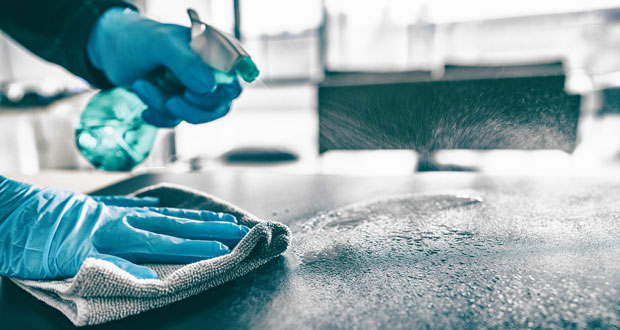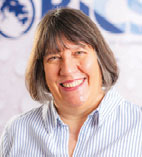The British Institute of Cleaning Science (BICSc) and the Cleaning and Support Services Association (CSSA) have announced an initiative in partnership with the University of Surrey to explore innovation in the cleaning industry. FMJ reports
In January, a joint initiative between BICSc and the CSSA into the ‘Future of Cleaning’ was launched to help determine the impact that machinery, including IoT sensors, robotics, and data collectors are having on the process of cleaning.
As part of the initiative, various trials are taking place on the University of Surrey campus, which was selected because the majority of its current cleaning processes are conducted manually. According to Paul Ashton, CSSA Chairman, the objective is to understand how the latest technology and innovations are impacting on cleaning regimes in real terms.
The study also aims to understand what differences in training needs will be required when introducing these technologies to the cleaning community. Denise Hanson, BICSc Commercial Director, who is an expert in technical cleaning, and Dr Andrew Kemp, alongside the BICSc Scientific Advisory Board, are heavily involved in the ongoing research project.
Explaining the rationale behind the initiative, Hanson says: “There has been a huge increase in the technology available to the cleaning industry and while each supplier claims the effectiveness of their kit, there has been little independent validation to date on these claims.
“BICSc produces productivity ratios for the cleaning of different buildings and to remain up-to-date and valid these rates need to incorporate relevant time saving technologies.”
She believes the research is important as it represents independent validation of manufacturers’ claims. The trial has been set up to allow the manufacturers to choose campus areas where they feel they can make an impact and then look at what they achieve, compared to their general equipment claims.
The leading suppliers taking part are Numatic, Birkin, ICE – Industrial Cleaning Equipment, Killis, Diversey, Kärcher, Orion Eco Solution, and Safer Spaces.
These manufacturers were given the opportunity to walk around the university and choose where they felt that their equipment could make the biggest difference. The key areas identified were the university’s sports centre and the vets’ school.
Explains Hanson: “The equipment that the participating manufacturers are supplying is cutting-edge and among the latest options available in the industry.
“We have cobotics, robotics and later into the trial there will be microfibre and there will be product and antibacterial coatings. So, we are looking at a range of different solutions to cleaning issues and productivities.
“Being an independent, standalone study makes this important to the sector and there will be learnings about where equipment works best and where it fits.”
HOW THE TRIALS TAKE PLACE
Because the trials will take place in set areas on the university campus they can be judged like against like. The suppliers will then outfit these areas with their recommended ranges and train the operatives in their utilisation.
Each trial will run for a six-week period and the areas will be audited for their cleanliness on both the start and the completion of the trial period, with operatives also being questioned for their views on the kit and its effectiveness.
Air quality samples will also be taken at each trial, for both pre and post cleaning, to check any manufacturer’s claims that their machinery delivers better air quality. Swabs will also be taken in the test areas to check the bacterial counts both pre and post trials.
Says Hanson: “We are also carrying out audits via the BICSc Audit App at the start of each trial and at the end of each trial. As it will be the same auditor throughout the trials, which will be myself. We will have qualitative standards, which means we are not explaining to the staff what’s wrong during the trials.
“The trial will be looking at the robustness and reliability of the equipment provided, which will be part of the information we gather from this project. Each trial will clearly show the cleaning standards achieved and the productivity of each manufacturer and their offer against the standard ratings.”






